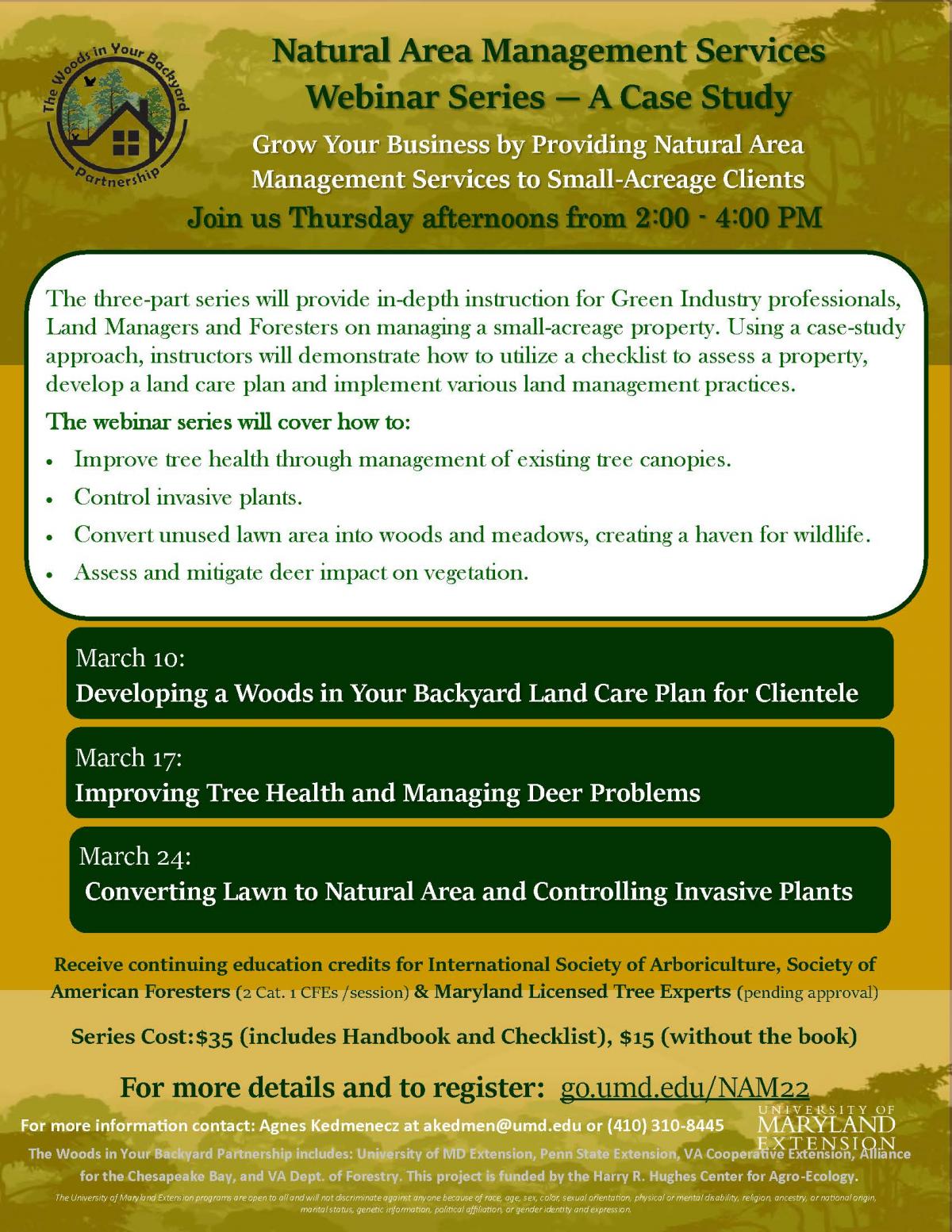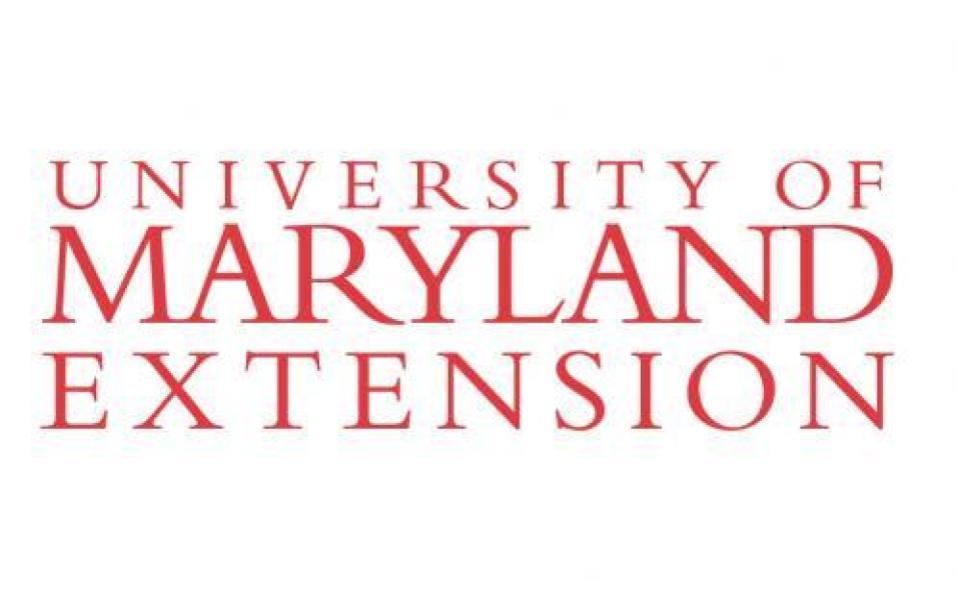 Green industry professionals looking to expand their services to include working in woodlands and meadows can benefit from a series of webinars on natural area management offered by the University of Maryland Extension.
Green industry professionals looking to expand their services to include working in woodlands and meadows can benefit from a series of webinars on natural area management offered by the University of Maryland Extension.
The Natural Area Management Services Series: A Case Study is designed for land managers and interested landowners. These webinars will be held from 2 p.m. to 4 p.m. on three consecutive Thursdays: March 10, 17, and 24, 2022, and interested participants must register online at https://go.umd.edu/NAM22.
The three-part series based on the Woodland Health Practices Manual and Checklist, created by the Woods in Your Backyard partnership, will provide in-depth instruction on managing a small-acreage property. Using a case-study approach, instructors will demonstrate how to utilize the checklist to assess a property, develop a land care plan, and implement various land management practices. The webinar series will cover how to improve tree health through management of existing tree canopies, control invasive plants, convert unused lawn area into woods and meadows, creating a haven for wildlife, and assess and mitigate deer impact on vegetation.
The aim is to inform and equip green industry professionals with resources, knowledge and skills to provide additional services to clientele while improving ecosystem health. A certificate of attendance will be provided to participants who attend the live sessions only. These certificates can be used to obtain professional development credits for International Society of Arboriculture, Society of American Foresters (pending approval) and Maryland Licensed Tree Experts (pending approval).
The Woods in Your Backyard Partnership includes the University of Maryland Extension, the Alliance for the Chesapeake Bay, Forests for the Bay, Penn State Extension, Virginia Cooperative Extension, and the Virginia Department of Forestry.
Registrations will be accepted through March 9. Registration is required to receive the link to access the webinar. Registrants also will receive access to webinar recordings. Cost of the program is $35, which includes the Woodland Health Practices Handbook and the Woodland Health Assessment Checklist and Management Actions Guide The webinar is $15 without the Handbook and Guide Register and find more information at https://go.umd.edu/NAM22.
For more information on program content, contact Agnes Kedmenecz, extension educator, at 410-827-8056 or [email protected].
Agenda:
Webinar 1: Thursday, March 10, 2022, 2 – 4 p.m.
Developing a Woods In Your Backyard Land Care Plan for Clientele: A Case Study Approach
This session will provide a brief overview of the Woods in Your Backyard educational program and resources available. It will describe the potential benefits to offering these services to small acreage landowners. In addition, it will explain what their motivations and interests are for natural area services and how to communicate your message to clientele. This will be done by focusing on a case-study property to demonstrate how to utilize the Woodland Health Assessment: Checklist & Management Actions Tool for the initial walk through. Session will wrap-up by developing a land care plan for the case study property.
Webinar 2: Thursday, March 17, 2022, 2 – 4 p.m.
Improving Tree Health and Managing Deer Problems: A Case Study Approach
This webinar covers two additional high priority practices: how to convert unused lawn area into a haven for wildlife by converting it to woods and meadows. Planting trees, shrubs, forbs, and grasses is only the first step, practices such as controlling competing and invasive vegetation and maintaining tree protection will help ensure success. Next, this session will discuss how to identify and mitigate the negative impacts of deer overabundance. Methods to assess deer impact as well as small and large-scale methods to reduce the impact of deer on vegetation will be addressed.
Webinar 3: Thursday, March 24, 2022, 2 – 4 p.m.
Converting Lawn to Natural Area and Controlling Invasive Plants: A Case Study Approach
This webinar will cover two high priority management practices: how to improve tree health and habitat by thinning overcrowded trees and releasing chosen or “crop” trees and invasive plant problems and how best to control them. Herbicide selection and application methods will be examined in detail.
Time: Thursdays: March 10, 17 and 24, 2022 Registration Information: https://go.umd.edu/NAM22
Registration Materials & Cost: $35.00. Includes Woodland Health Practices Handbook and the Woodland Health Assessment Checklist and Management Actions Guide.
$15 without the Handbook and Guide
Note: For an additional $20 participants can also receive a copy of the original Woods in Your Backyard book 2nd edition.
The Woods in Your Backyard Partnership includes the University of Maryland Extension, Penn State Extension, Virginia Cooperative Extension, Alliance for the Chesapeake Bay, and Virginia Dept. of Forestry
This project is funded by the Harry R. Hughes Center for Agro-Ecology.



Write a Letter to the Editor on this Article
We encourage readers to offer their point of view on this article by submitting the following form. Editing is sometimes necessary and is done at the discretion of the editorial staff.